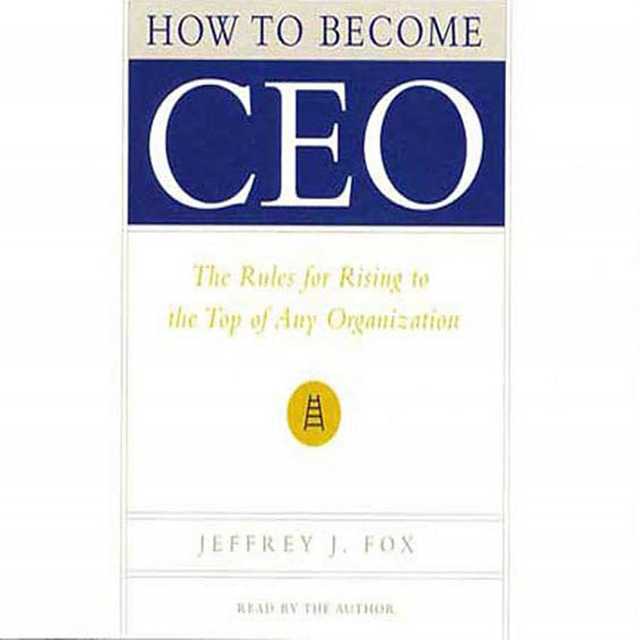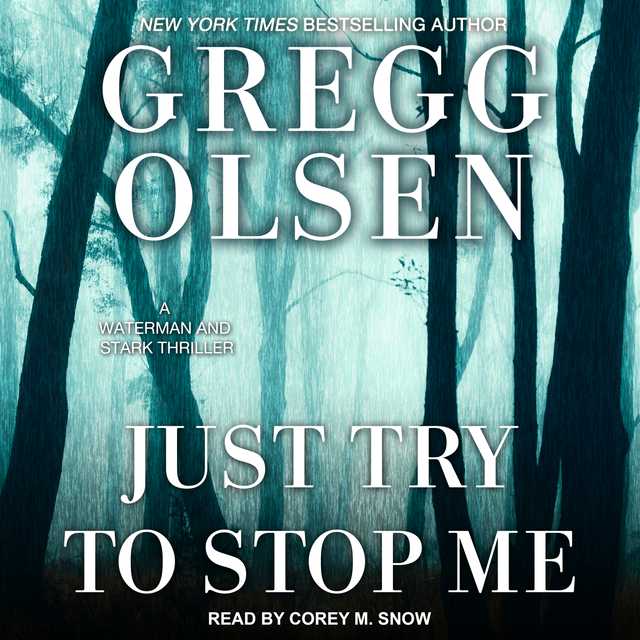Devoured Audiobook Summary
A provocative look at how and what Americans eat and why–a flavorful blend of The Omnivore’s Dilemma, Salt Sugar Fat, and Freakonomics that reveals how the way we live shapes the way we eat.
Food writer and Culinary Institute of America program director Sophie Egan takes readers on an eye-opening journey through the American food psyche, examining the connections between the values that define our national character–work, freedom, and progress–and our eating habits, the good and the bad. Egan explores why these values make for such an unstable, and often unhealthy, food culture and, paradoxically, why they also make America’s cuisine so great.
Egan raises a host of intriguing questions: Why does McDonald’s have 107 items on its menu? Why are breakfast sandwiches, protein bars, and gluten-free anything so popular? Will bland, soulless meal replacements like Soylent revolutionize our definition of a meal? The search for answers takes her across the culinary landscape, from the prioritization of convenience over health to the unintended consequences of “perks” like free meals for employees; from the American obsession with “having it our way” to the surge of Starbucks, Chipotle, and other chains individualizing the eating experience; from high culture–artisan and organic and what exactly “natural” means–to low culture–the sale of 100 million Taco Bell Doritos Locos Tacos in ten weeks. She also looks at how America’s cuisine–like the nation itself–has been shaped by diverse influences from across the globe.
Devoured weaves together insights from the fields of psychology, anthropology, food science, and behavioral economics as well as myriad examples from daily life to create a powerful and unique look at food in America.
Other Top Audiobooks
Devoured Audiobook Narrator
Ann Richardson is the narrator of Devoured audiobook that was written by Sophie Egan
Sophie Egan is the Director of Health and Sustainability Leadership and Editorial Director at The Culinary Institute of America. Based in San Francisco, Sophie is a contributor to The New York Times’ Well blog, and has written about food and health for Time, The Wall Street Journal, The Washington Post, Bon Appetit, WIRED, and Sunset magazine, where she worked on The Sunset Cookbook and The One-Block Feast book. She holds a master of public health from the University of California, Berkeley, with a focus on health and social behavior, and a bachelor of arts with honors in history from Stanford University. In 2016, she was named one of the UC Global Food Initiative’s 30 Under 30.
About the Author(s) of Devoured
Sophie Egan is the author of Devoured
More From the Same
- Author : Sophie Egan
- How to Be a Conscious Eater
- Publisher : HarperAudio
- Abraham
- American Gods [TV Tie-In]
- Dead Ringer
- House of Sand and Fog
- Prey
Devoured Full Details
| Narrator | Ann Richardson |
| Length | 12 hours 27 minutes |
| Author | Sophie Egan |
| Category | |
| Publisher | HarperAudio |
| Release date | May 03, 2016 |
| ISBN | 9780062471024 |
Additional info
The publisher of the Devoured is HarperAudio. The imprint is HarperAudio. It is supplied by HarperAudio. The ISBN-13 is 9780062471024.
Global Availability
This book is only available in the United States.
Goodreads Reviews
Kater
July 21, 2016
When I think about food, it's usually in the context of "what am I going to make for dinner" or gnashing my teeth in irritation about coworkers evangelizing about their latest fad diets. Food is a huge part of our culture and our identity, (a fact that I was made well aware of when creating a faerie world in which people don't eat.) But what is American food culture? Egan takes a stab at discussing it in this book.Egan begins talking about a hypothetical American office worker's typical eating day. In fact, a large chunk of the book talks about the relationship between food and work. Some of it was quite enlightening. If you snack (and who doesn't?) you eat more than people who just eat meals, because the not-meal nature of a snack falls outside of what you consider your daily intake. She talks about how typical the snack-heavy day is for a "typical" worker, especially with the donuts that someone else brings in, the company-provided chocolates, the portable lunch eaten at a computer (aptly named "Sad Desk Lunch.") This will seem eye-openingly familiar to anyone who works a white-collar corporate job, and baffling to people whose work doesn't involve a monitor and a keyboard. Considering her hypothetical worker is in his thirties and works at Google, I can't say that there's much typical about him except the snacking all day. But it did make me think about the times when I had a Kind bar instead of cooking myself breakfast, and about how much chocolate I consume now that I'm in a desk job, though the emergency chocolate at home can remain unconsumed for half a year or more.Egan also focuses primarily on millennials, as she herself is one. (This really bothered me, because if millennials are doing research and writing books, that means millennials are adults, and if millennials are adults, that means I'm one too--when the heck did that happen?) She focuses on some millennial-driven change that is positive and some that is negative. On the positive side, she puts brunch, a "secular church" or way of lingering over a meal to savor pleasure and camaraderie with friends regardless of the time cost. She also includes fusion food (creating new and wonderful dishes, based on creativity over adherence to tradition), food trucks, and alternate packaging for wine. On the negative side, she puts over-proteined diets, energy bars and other packaged food (Soylent she finds particularly egregious), eating at your desk, stunt foods (such as oreo shakes or Doritos Locos tacos) and diets of any kind. This is the first place I've heard about a study that proved what I myself believed my whole life: dieting of any kind will make you fatter in the long run.Egan also discusses briefly the history of certain aspects of American cuisine, such as our love of Italian food and the rise of Trader Joe's and the democratization of wine. She touches on what the cover promises "How What We Eat Defines Who We Are" but that's just a brief five categories which don't seem obvious or inclusive, and also don't really tell us anything about us personally, not even anything as obvious as "conservative housewives are more likely to use cheese in baked dishes" or "high-educated single women consume the most kale." I'd give it 5 stars if it actually delivered what the cover promised, (and if she stopped using "like" when she meant "such as" which probably bothers no one but me.)But even though the book doesn't deliver on what the cover promises, it still contains a lot of fascinating information. Egan hasn't done much of her own firsthand research, but she's got access to quite a few excellent secondary sources, including the renowned author Brian Wansink, with whom she studied, and some food-industry giants whom she interviewed.This is a fun and informative read if you're interested in food and culture, though if you're a die-hard dieter in the throes of your newest food cult, you'll probably get indignant that the author isn't a disciple of the one true word. The rest of us will get something out of it.
Biblio
May 10, 2016
Covers a lot of the same ground as Pandora's Lunchbox, Salt Sugar Fat, The Dorito Effect, but if you enjoy those books, as I have, you'll like this one too. Sophie Egan has a conversational style and seems ready to try anything. A few of the topics in Devoured that I don't recall seeing in the other books of this type are "stunt foods" such as KFC's Double Down, and products that promote what they DON'T contain, such as gluten-free.
Sarah
August 24, 2016
Fascinating! It's no secret I find the subject of food interesting but this comprehensive exploration of American food culture exceeded my expectations. To use a terrible, horrible, no good, very bad pun - I devoured it! Author Sophie Egan discusses in depth how and why we eat the way we do here in the twenty-first century United States of America. From the sad desk lunch to family dinners to our reliance on convenience foods our habits are NOT in line with those of our ancestors. She also tackles how wine gained popularity (much of the credit goes to none other than Joe Coulombe aka "Trader Joe" and his famous, or infamous, "Two Buck Chuck") false shortages in the days prior to the iconic American Super Bowl holiday (anyone remember the cries of lack of chicken wings or avocados?) and the popularity of "absence" foods, that is those lacking fat, carbs, sodium, etc. And, pleasing to my proud Italian roots (are you reading this Dad?) why Italian American food has had such a significant impact on our society and why it has been so eagerly embraced by the majority of those with working taste buds (pasta, pizza, cheese, bread - duh!) I was so throughly impressed with the research, quality of writing, and down-to-earth humor I was able to overlook her status as a millennial and simply savor this engaging read.
Heather(Gibby)
June 18, 2017
This was a very interesting look at the American food culture. I found much of it fascinating. I am not an American, but I believe that Canadian food tastes most likely follow behind what is trending in American cuisine. There are some really interesting historical information of how different economic times, and the influence of immigrants on cuisine. One of the more disturbing facts in the book is that the average American spends more money on food in restaurants than they do in a grocery store. Super fun read!
Bernard
November 23, 2020
This was a rather enjoyable read. The author poured a lot of work into it and it shows. I think the subtitle could have been reversed. "How who we are defines what we eat".The author did a great job at analyzing food trends and linking them with American's culture and society. I really liked her takes on work ethics, stunt foods and individuality, which were new ideas for me.The last chapter (on immigration) was a let down compared to the rest, as I feel the analysis was focused on white America, leaving BIPOC out of the equation.
NonFiction
December 12, 2020
A good look what food companies do to sell food and how trends came to be.
Allisonlcarter
March 04, 2017
This book is a bit like a "Marketplace" for food. Which is a compliment. There isn't really a lot new here -- much of it I'd picked up in bits and pieces over the years from reading media online -- but Egan's voice is so engaging and funny that it's pleasant to go over it again, within a more structured framework.The standout chapter is definitely on how "Italian" cuisine shaped American food, and in a larger way how all non-Anglo-Germanic food has had an impact. That leads into her passionate last chapter, on ways we can improve our food system and create a better America. It's an optimistic, loving viewpoint that's high on our ability to come together and achieve anything. But wrapped up nicely in a snarky Millennial shell.
Marc
August 12, 2021
Sophie has studied eating behavior and this book is such an interesting insight. Sophie reveals the deeper meaning behind our food choices. From our prioritizing of convenience over health to the ways food at work affects our happiness. I had a wonderful conversation with Sophie on my podcast Inside Ideas. You can listen to Episode 119 here: https://youtu.be/mwm0EYOTD2UOr follow any of the links below: https://www.innovatorsmag.com/how-to-...https://medium.com/inside-ideas/sophi...
Jessica
May 23, 2017
In Devoured Sophie Egan explores the deeper meaning behind what we choose to eat and why. What does is say about our country that only 26% of Americans eat breakfast everyday and 40% eat lunch at their desk so they can keep working? Egan explores not only how we eat, but some of the crazy things we eat like cereal that has more sugar than candy bars and things like the Doritos Locos Taco from Taco Bell. Egan explores 10 phenomena that illustrate what our food says about who we are as a culture. In the last chapter she gives her prescription for how we can create better food habits and culture - "Work less and savor more. Make it real and stir the pot." (p. 311). This is a very interesting look at America's food culture and habits and it really does say a lot about who we are both for good and bad. I liked that Egan shows her findings, but doesn't pass judgement about what we should or shouldn't be eating. She isn't telling us to give up sugar forever, but what she explores does shine a light on some bad habits that could be better. Overall, a great book with tons of eye-opening information. Here are some quotes I really liked:"I was on a hike with a Swedish friend, and she was talking about how stunned she is by the amount of time people work in the United States...she asked me a simple question about the sheer number of hours we work: Why? She was absolutely dumbfounded when I explained: Putting in the time proves your value. She laughed at the idea and said, 'In Sweden, if you're working more than the hours absolutely mandatory and expected of you, people's reaction is, 'What's wrong with you that you couldn't get your work done in time?' ' In other words, it's an efficiency question - 'You're working late tonight? Oh, you must be slow.' I stopped in my tracks. Mind blown." (p. 27)"When [consumers were asked] how they define a 'meal,' they describe a combination of foods, home-cooked and plated. This sounds about right to me too. But when he asks them the last time they had a meal like that, responses vary from 'a couple of weeks ago' to 'maybe Thanksgiving.' One of the fundamental themes of eating behavior is that there is a difference between what people say they want and what they actually eat. It's often the difference between intention and action, between goals and reality." (p. 29)"Dinner has become a litmus test for family values in America. According to recent data from Gallup, 53 percent of American adults with children under the age of eighteen say their family eats dinner together at home six or seven nights a week. On average, families share 5.1 dinners together, down only slightly from 5.4 in 1997...I'll admit, this figure is higher than I would have given us credit for...But if you dig deeper into the family meal, it gets more interesting...It turns out that a good number of families eating dinner 'together' aren't eating the same thing. Family meals are following more of an a la carte model...More than half of families cook multiple meals or dishes to cater to each family member." (p. 97-8)"...our food culture thrives on 'mass customization,' which sounds like an oxymoron but means taking existing processed foods and delivering them in individual-size portions that meet a wide range of specific demands. A cup of coffee made with a Keurig capsule costs about three times more than one made with supermarket grounds and a drip machine. That Keurig habit can add up to spending $400 more on coffee in a given year. Apparently the exact flavor we get from Keurig, made fresh at the precise moment we want it, is worth that much." (p. 103)"...a far more prevalent, and equally puzzling, practice: Selling Absence. That is, how marketers convince us to buy foods such as fat-free milk, low-sodium pretzel sticks, and 100-calorie packs of cookies. What we are doing is purchasing a food not for the crazy reason that it contains worthwhile ingredients - but because of what an item lacks. Emily Green, a writer for the Los Angeles Times, has dubbed this genre of foods 'nonundelows,' because their labels being with 'non-,' 'un-,' 'de-' and 'low-.'" (p. 107)"So when it comes to brunch, one way to think about its popularity is to ask what activity it is replacing. If people are sipping mimosas at a cafe with friends, what are they not doing on Sunday mornings? The answer: Brunch is secular church. Sunday service for the socially starved. Something for the nothings. Specifically, something soulful and restorative...in parts of the United States where people aren't as religious, the brunch gathering is the closest substitute for the experience of church: getting out of the house, marking the turn of the calendar, breaking bread together. Perhaps most important, Connor argues, it involves spending time with friends or family." (p. 145)
Jan
January 04, 2023
Devoured~~~Do you believe that we are what we eat? Another way of putting it is the subtitle of Sophie Egan's 2016 book Devoured: From Chicken Wings to Kale Smoothies—How We Eat Defines Who We Are. Like me you may imagine the book is about becoming a vegan or a much more health-conscious eater, but while Egan isn't hostile to veganism, her book is more bout how American food has evolved over the years. She wrote this long before the pandemic where cooking at home became more popular and plant-based alternatives weren't nearly as accesible.I noticed that her 2020 book is about conscientious eating, but still about a general diet. Guess that attracts more readers, but it doesn't help our health or our planet.I listened to this as an audiobook, not my favorite method of absorbing a book, but it may the choice method for more busy Americans these days. One of the major influences on our food culture is our work culture. Americans work longer hours than any other wealthy nation, I believe she said, and we believe that working overtime in the office shows our loyalty and... helpfulness as it were to the company, for which we don't get much compensation if any, but when you ask people what they think about working overtime, they are amused at the inefficient Americans.As Egan points out, that perspective is totally shocking to American employees and employers. Besides work culture and eating at work influencing our food culture, she also discusses the manipulative media, immigrants Americanizing their dishes, fast food convenience, and nostalgia as influencers, the latter point where she encourages adults to bring their kids into the kitchen to learn how fun cooking can be so that we don't become a nation where only professionals do the cooking.It's mostly an interesting book with great insight I'll remember. If you want to change how Americans eat and manage the obesity problem, you've first got to fix the work culture. Give them fair compensation for their work so they don't have to work so much.
Staci
June 15, 2017
Thank you to Goodreads for a free copy of this book! I thoroughly enjoyed it for both the less formal writing style and the great wealth of interesting and informative information. As a relative newcomer to the world of nutrition science I appreciated the endless references and the pulling together of facts and figures into a single book. I have already used many of them! I found this book to be full of interesting data that provided insights into patterns many of us may or may not notice. The information was fresh, which sadly is often not the case with a book. I particularly enjoyed the chapter on the Super Bowl and am fully on board with the idea of making it a national holiday! It took me awhile to read this book, as I found myself going off on tangents to explore other materials cited by the author. Overall a great book and a great starting point for someone who may be familiar with, say, Michael Pollan and Marion Nestle, but not many of the other writers and works referenced.
Jill
October 09, 2017
I want to be this author - she is everything that sounds delicious and creative and graceful and talented, and she lives in the next district over from me in San Francisco so it feels almost attainable, as if proximity is all it takes! Maybe it's that her writing is so approachable that it's easy to follow and to live through her to be educated on these ideas so easily.I loved this book because I loved the author and her story. She lives in San Francisco and I want to be her: researching food things and going to fancy chef schools, work as a director for the Culinary Institute of America and research Taco Bell Doritos Locos Tacos. Made me smart.
Blake
August 15, 2017
I was surprised when I saw the mid-3 star reviews of this book. I've definitely read worse ones on the topic of food. Very accessible and readable, Devoured drops cultural observations and food facts with regularity. Though I might disagree with some of the author's stances on food culture (I HATE chaffing, and the over customization of food in restaurants. Chill out with your 80-syllable Starbucks order and just get a damn coffee.), I just took everything else in. An easy summer read.
Sydney
January 07, 2018
Sophie Egan tackles a doozy - American food culture - with charm and humor. She doesn't just talk about food, either, but makes shrewd observations about our relationship with work, the environment, and more. And it's funny: Even in such a well-researched book, there's plenty of entertaining commentary to balance out all those facts and stats.
Most Popular Audiobooks
Frequently asked questions
Listening to audiobooks not only easy, it is also very convenient. You can listen to audiobooks on almost every device. From your laptop to your smart phone or even a smart speaker like Apple HomePod or even Alexa. Here’s how you can get started listening to audiobooks.
- 1. Download your favorite audiobook app such as Speechify.
- 2. Sign up for an account.
- 3. Browse the library for the best audiobooks and select the first one for free
- 4. Download the audiobook file to your device
- 5. Open the Speechify audiobook app and select the audiobook you want to listen to.
- 6. Adjust the playback speed and other settings to your preference.
- 7. Press play and enjoy!
While you can listen to the bestsellers on almost any device, and preferences may vary, generally smart phones are offer the most convenience factor. You could be working out, grocery shopping, or even watching your dog in the dog park on a Saturday morning.
However, most audiobook apps work across multiple devices so you can pick up that riveting new Stephen King book you started at the dog park, back on your laptop when you get back home.
Speechify is one of the best apps for audiobooks. The pricing structure is the most competitive in the market and the app is easy to use. It features the best sellers and award winning authors. Listen to your favorite books or discover new ones and listen to real voice actors read to you. Getting started is easy, the first book is free.
Research showcasing the brain health benefits of reading on a regular basis is wide-ranging and undeniable. However, research comparing the benefits of reading vs listening is much more sparse. According to professor of psychology and author Dr. Kristen Willeumier, though, there is good reason to believe that the reading experience provided by audiobooks offers many of the same brain benefits as reading a physical book.
Audiobooks are recordings of books that are read aloud by a professional voice actor. The recordings are typically available for purchase and download in digital formats such as MP3, WMA, or AAC. They can also be streamed from online services like Speechify, Audible, AppleBooks, or Spotify.
You simply download the app onto your smart phone, create your account, and in Speechify, you can choose your first book, from our vast library of best-sellers and classics, to read for free.
Audiobooks, like real books can add up over time. Here’s where you can listen to audiobooks for free. Speechify let’s you read your first best seller for free. Apart from that, we have a vast selection of free audiobooks that you can enjoy. Get the same rich experience no matter if the book was free or not.
It depends. Yes, there are free audiobooks and paid audiobooks. Speechify offers a blend of both!
It varies. The easiest way depends on a few things. The app and service you use, which device, and platform. Speechify is the easiest way to listen to audiobooks. Downloading the app is quick. It is not a large app and does not eat up space on your iPhone or Android device.
Listening to audiobooks on your smart phone, with Speechify, is the easiest way to listen to audiobooks.











![Darkness Reigns [Dramatized Adaptation]](https://speechify.com/audiobooks/wp-content/uploads/sites/29/2023/06/pr_eaudio_9781648818394_640px.jpg)


















